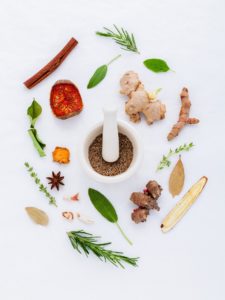There’s an Asian grocery store not too far from my house. I shop there occasionally when I’m looking for foods that I can’t find anywhere else—things like mock duck, baby bok choy, and chili bean paste. As I wander through the store, I can’t help but be amazed at all the foods that I’m totally unfamiliar with, and wonder how I would use them in a meal. As a label reader, I can’t help but think about the ingredients, as well as the additives in these interesting foods. However, most of the labels in this store aren’t helpful because most of the labels are in Chinese.
 Many people have become leery of products made in China. It’s no secret that China has been plagued with issues regarding the quality and purity of some foods, drugs, and herbs being consumed there and imported to other countries. While the Chinese government is trying to remedy the situation through training, inspections, and the institution of good manufacturing practices, there is still some mistrust on the part of consumers.
Many people have become leery of products made in China. It’s no secret that China has been plagued with issues regarding the quality and purity of some foods, drugs, and herbs being consumed there and imported to other countries. While the Chinese government is trying to remedy the situation through training, inspections, and the institution of good manufacturing practices, there is still some mistrust on the part of consumers.
As a result, when I’m prescribing Chinese herbs for my patients, I am frequently asked about the quality and ingredients in the herbs I’m using. Most people want to be reassured not only that they’re effective, but also that they’re safe. When it comes to Chinese herbs, there are a number of issues to take into consideration. Among them:
-Is what’s on the label actually what’s in the bottle? This is a valid concern, whether you are talking about supplements made in the United States or herbs that have been processed in China. How can you be sure of what you’re taking? The bottom line is that you can never be positive, but there are safeguards that you can take.
Most reputable herb companies tell you in their catalogue or online about their manufacturing process. I only order herbs from companies that are willing to share that information. The herbs that I prescribe have been tested for composition, purity, and to screen for heavy metals and pesticides. In addition, the manufacturers can, if asked, provide proof of their procedures and controls for sanitation and hygiene. Also, reputable herb companies abide by current good manufacturing processes, which is indicated by cGMP on the label.
-What about toxicity? There are two issues with toxicity. The first is discussed above. It’s important to understand how the herbs you’re taking have been processed. Are they screened for heavy metals and pesticides? Are there any added preservatives? You can find this information out from any reputable manufacturer.
The second issue regarding toxicity is are the herbs themselves toxic when taken at a reasonable dosage or over time? The history of Chinese herbal medicine is over a thousand years old, and centuries ago toxic ingredients were used unknowingly. Over time, those substances have been completely removed from the Chinese formulary, or are used with extreme caution. It’s important to understand that Chinese herbs contain numerous compounds, and as with any medication or supplement, what is safe at the correct dose can be toxic at a high dose. For that reason, it’s imperative that you understand the credentials of whomever is prescribing your herbs. Acupuncturists who are adequately trained in Chinese herbal medicine must take years of coursework and pass a national exam.
-How about herb/drug interactions? In order to prescribe herbs safely, your practitioner needs to have a complete list of the medications—both prescription and over the counter—that you’re taking. A few notable examples of herb/drug interactions include the use of any herbs with anti-clotting Warfarin or Coumadin, as the herbs can decrease the effective of that medication. Taking an antacid medication can decrease the absorption of any herbs you’re taking, and licorice may affect your sodium/potassium balance, and shouldn’t be taken with diuretics. While I can decrease the herbal dosage, or prescribe a short course of herbs, in almost every case when a patient is taking several prescription medications, to be on the safe side, I won’t prescribe an herbal formula at all.
-Is Chinese herbal medicine effective? Treating patients with Chinese herbs for a wide variety of conditions has been a practice for over a thousand years. In fact, many modern hospitals in China today feature both a medical and herbal pharmacy. A great number of modern drugs—from aspirin to digitalis—have been developed from herbs, and research is ongoing to document the effectiveness of other herbs for a variety of illnesses. While many people think that because herbs are natural, they aren’t very strong. However, Chinese herbs can be a powerful and effective way to treat a great number of health conditions.



